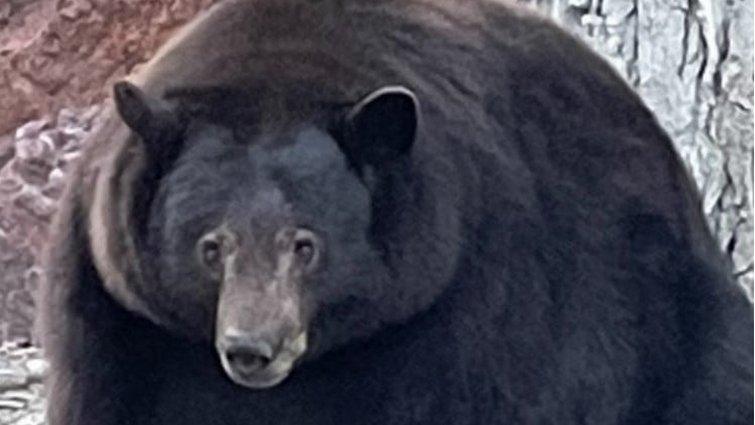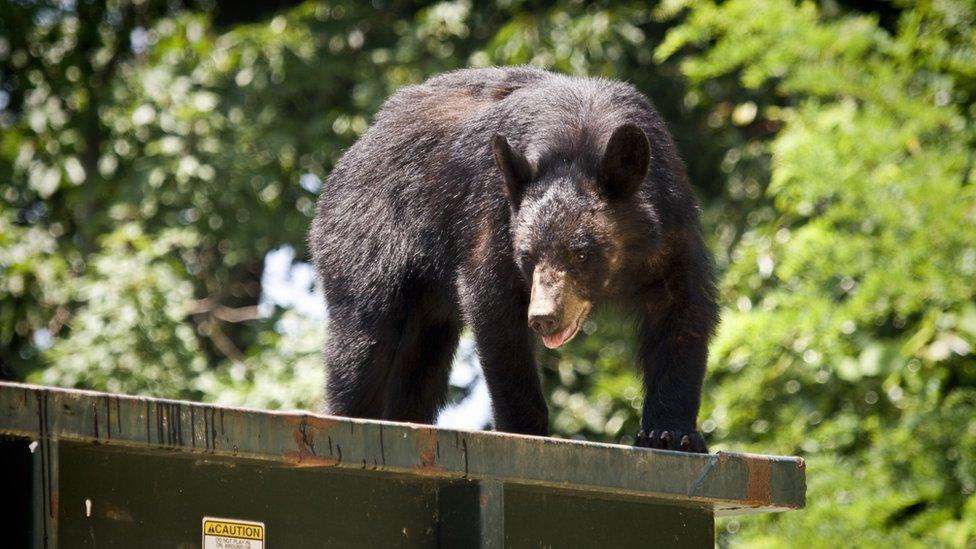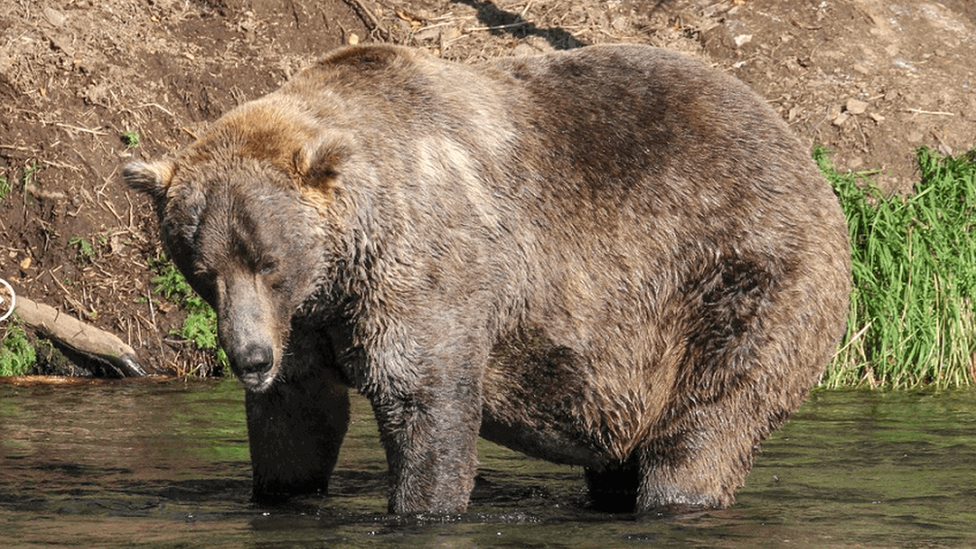'Hank the Tank': DNA evidence spares 500lb burglar bear
- Published

California's burliest burglar is no longer the lone suspect in nearly 40 home break-ins across the Lake Tahoe region, wildlife officials have said.
Residents have made more than 150 calls since last summer about "Hank the Tank", a 500lb (227kg) black bear with a raging appetite for human food.
But DNA samples have now linked at least two other bears to the crime scenes.
That means officials will no longer seek to put down the wild animal.
"No bears will be euthanised, harmed, relocated to some facility or placed in a zoo," said Peter Tira, a spokesperson for the California Department of Fish & Wildlife (CDFW).
CDFW will instead refocus its efforts on tagging the bears for genetic data and then releasing them into a nearby wild habitat, he said.
Human-bear conflicts happen almost daily in the Tahoe area, home to one of the highest concentrations of black bears in North America.
More than 20,000 residents live in the area, situated on California's border with Nevada, and it is also a major tourist destination.
Stories of Hank's break-ins here have become a viral sensation.
According to CDFW, Hank does not fear humans, has come to associate them with access to food and knows how to use its size and strength effectively.
"When you have a bear forcibly crashing its way through a garage door or ripping open a front door with people inside, that's pretty brazen and unusual," Mr Tira told the BBC.
On Wednesday, local police said they had been "inundated" with emergency calls about Hank.
"Please stop calling [us] to give your opinions about Hank," they wrote on Facebook.
Officials and locals had been identifying the chunky criminal by his dark coat and exceptionally large size, apparently from skipping winter hibernation.
But in a statement on Thursday, CDFW said "identifying bears simply by their visible, physical characteristics can lead to misidentifying bears".
Genetic samples from a break-in last Friday that was initially linked to Hank, instead came from a female bear not included in the agency's database.
Further DNA analysis of similar incidents indicated at least one more bear - another female - is also involved.
The agency has called on area residents to more carefully store food and trash to avoid attracting bears to the neighbourhood.
Related topics
- Published22 February 2022

- Published17 August 2021

- Published6 October 2021
